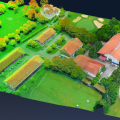
South Australian police want all mobile phones to provide them with GPS coordinates when someone calls 000 in an emergency.
The Australian Communications and Media Authority is currently conducting an inquiry into a proposal to require mobile phone carriers to provide limited location information available "on demand".
But superintendant Colin Cornish, head of the South Australian police communications, told the inquiry police and other emergency organisations wanted a model in which companies automatically provide the information – known as a “push model.”
"Mobile location information has been earnestly discussed among stakeholders in Australia since 1997, with little progress in implementation," he told the inquiry, according to Adelaide Now.
"There have been some incidents where the existence of automated mobile location information … would have likely saved lives, such as the David Iredale tragedy and events within the Victorian bushfires."
David Iredale, 17, died after days lost in NSW bushland despite making three 000 calls and telling operators he was lost and did not have a street address.
Seven out of every 10 calls to the 000 line in Australia are now received by mobile phone networks.
Currently a caller‘s location is provided to the level of the location of the caller‘s current standardised mobile service area (SMSA) – an area that can range in size from 2,000 to 500,000 square kilometres.
Mobile phone companies have advised that a “push model “ could be expensive to implement and require a number of network changes. In addition, it could result in all emergency calls from mobile phones experiencing a 20 second delay before being connected to an emergency service organisation as the data is transferred.
The Australian Communications and Media Authority says its final decision on the model will ”strike a balance between minimising the costs to the emergency call person, industry and emergency service organisations and the opportunity to obtain the most accurate location information available for callers who are unable to communicate their location from a mobile phone.”







